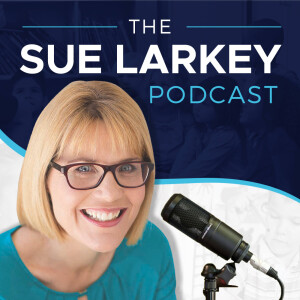
SLP 225: Educators Guide to Pathological Demand Avoidance (PDA) & NEW Course Out Now with Laura Kerbey
 2023-11-27
2023-11-27
Join Sue for an upcoming Live Virtual Workshop where you will learn from Sue practical tips & strategies to make a difference.
In this episode, we will discuss:
✅ Understand Pathological Demand Avoidance (PDA): It’s a unique autism type that requires a different approach.
✅ The differences between PDA and ODD.
✅ PDA is often misunderstood – these children want to do well but struggle with demands.
✅ Build relationships through sharing experiences and following their interests. No hierarchies.
✅ Re-evaluate teaching strategies: Traditional autism strategies may not work for PDA students.
✅ Avoid power struggles by giving choices and focusing on natural consequences.
✅ Help manage meltdowns.
✅ Always offer a fresh start after difficulties.
✅ Make requests carefully – share demands and use clear choice language.
✅ Provide structure but allow autonomy within it. Be flexible day-to-day.
✅ For toileting, use subtle language about your own toileting and make it into a game.
✅ Strategies wear out quickly with PDA so keep mixing them up.
✅ Have confidence you can do it – small changes make a big difference!
suelarkey.com.au/educators-guide-to-pathological-demand-avoidance-and-new-course/
Join the Facebook group specifically for this podcast
www.facebook.com/groups/suelarkeypodcastcommunity/
Join my Neurodiversity Networksuelarkey.com.au/neurodiversity-network/
Follow my Instagram account for regular tipswww.instagram.com/sue.larkey/
To learn more about teaching or understanding ASD, please visit my website below.elearning.suelarkey.com.au
More Episodes
Create your
podcast in
minutes
- Full-featured podcast site
- Unlimited storage and bandwidth
- Comprehensive podcast stats
- Distribute to Apple Podcasts, Spotify, and more
- Make money with your podcast
It is Free
- Privacy Policy
- Cookie Policy
- Terms of Use
- Consent Preferences
- Copyright © 2015-2024 Podbean.com






